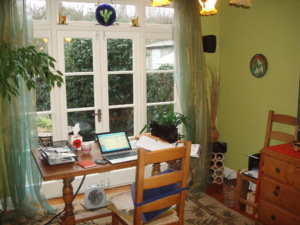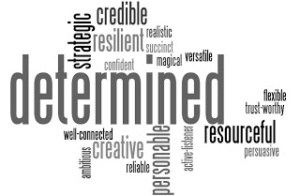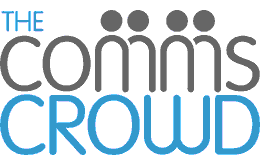The fallible freelancer – a cautionary tale

turns out life is not a rehearsal, shame becasue this month has been a shambles
Time to read: 3 minutes
Sam Howard shares some freelance fall out…
Everyone who’s their own boss bemoans the roller coaster ride of being solo. Secretly I have always thought this could be avoided if one was just a little bit more organised and realistic. I believe I may have even posted helpful advice on the subject. But it feels like September has gone out of its way to prove I knew nothing. Nada. Zip…
Week 1
Spend week in US to kick off big project, been looking forward to this since May. I’ve kept things ticking over in the summer but made sure the decks were completely clear for this big kick off. I’m sensible like that.
Week 2
Return all geared up, spend a week organizing myself and putting systems and processes into place. File every last mail both ‘in’ and ‘sent’ so I can access everything easily once project is live.
Week 3
Monday: News from the US. Project cancelled for internal reasons, no notice, no warning. Spend day feeling a bit numb… I have no work. I check contract, there is no provision for cancellation at this level. Christmas is cancelled.
Rest of week: Tempted to spend rest of week navel gazing. But navel gazing doesn’t pay the bills, so tell myself to buck up and see this as an opportunity to work with new people doing new things. Spend rest of week reaching out to industry contacts and worthy causes to see if I can earn my keep or at least be useful. Submit super competitive quotes, agree some freebies. Garner enough interest to keep myself busy for the next month or so.
Week 4
Monday: News from the US. There’s been a rethink, Project resurrected! Tra la la Christmas is back on. But now diary looks a bit messy what with the other commitments I’ve taken on and what if those not so super competitive quotes come through now? Tempted to go for a long walk, it’s all been a bit emotional. But realise I’m now effectively a week behind schedule on the big US project, so better just get my head down and stay focused.
Tuesday: Beloved vntagelaptop crashes, no notice, no warning. I take it to local repair shop, “All the docs are backed up,” I say with a touch of swagger, I am after all a sensible freelancer. “I just need you to restore mail.” How hard can that be? My IT team at the agency could fix things like this in ten minutes. “I’ll wait.” I say, casually flicking open a copy of PR Week that I’ve had the foresight to bring with me.
The repair man slowly and carefully explains that Outlook does not live in the ether like Gmail or Hotmail it lives on the laptop, the very dead laptop.
I was aghast!
He went on to explain the raw data from the mail service provider will come through on to a new PC, not this one, obvs, but my profile is gone and with it, sent mails, appointments and contacts…
I gather up my traitorous laptop, my tattered dignity and slink out of the shop.
Wednesday: OK, still no need to panic I’m a sensible freelancer and I have gadget insurance bought especially for such an eventuality. Nice gadget insurance man says of course they can and will help me. They’ll post me a claim form, I must post it back, once they have that they will arrange collection of my laptop and try to repair it, if they conclude it cannot be repaired then they will go about sourcing a replacement to the value of a whopping £300.
Wow and in that time I could make myself a chocolate tea pot too, I’m sure that will be equally bloody helpful.
Thursday: Don’t have time to source an on line bargain, go to high street and pay lots and lots for a new laptop, whose price doubles by the time I’ve bought all the stuff I need to make it ‘go’. I can pick it up tomorrow.
Friday: Pick up sexy new laptop, and fire up Outlook – there in one very bulging ‘in box’ are all the emails I have ever received since going solo. But I have been severely humbled and for this unwieldy mercy I am truly grateful. Spend my birthday weekend working through ‘inbox ’reclaiming contacts and filing so I can have a clean start for Monday. Don’t sleep so good, as now two weeks behind on several projects. ( Er yes the stupid priced job did come in.)
Week 5
Monday: Printer breaks. Is it my aura?
Tuesday: New mail – Would I like to head up a big, new and exciting project, already a month behind, very labour intensive with very tight deadlines oh and it’s really rather lucrative? Hell YES!
This morning: Smart phone implodes. I fear I may be heading same way.
Ten tips for going freelance
Time to read: 3 minutes
It’s been six months since Sam Howard turned freelance. If you are contemplating ‘the big leap’ here are her early days tips, while the pain of learning them is still fresh:

the cat can stay but the table and the chair are going to have to go
1) Take a break before you begin: Contrary to what I was advised, I recommend you do not quit your day job on a Thursday and start your first contract on the Friday. I think I would have been more able to absorb the culture shock if I had allowed a month in between. Ideally a couple of weeks of doing NOTHING, after 22 plus years of ‘real’ work, I guess I could have cut myself some slack there. And then the next few weeks can be spent sorting out behind the scenes stuff and not just the paperwork but the basics like a comfy chair, stationary etc.
2) Apply some discipline to the financials: To quote Jessie J ‘it’s not about the money’. I knew that from the get go, but it’s quite tricky to unhook your real worth from your ‘take home’. Let it go, you are not your agency day rate or your old job title. You are so much more and being a freelancer gives you the space to explore it. But to avoid the feast or famine syndrome that everyone warns you about, set up a separate bank account, tip some cash in to it to ease yourself in, say three months of a notional wage. You’ll have enough to adjust to, without worrying about money from day one. Keep all your business outgoings and income in this one account, from this you can transfer an appropriate amount for tax into a savings account and also pull a regular wage so you can continue to budget as you did when you were employed.
3) Don’t underestimate how long tasks are going to take:One of the biggest shockers I found was that there was no one to whom I could delegate. I was so delighted that the decision making process was now instantaneous, but all the time savings made on that side were swallowed up by the implementation process now that it was just me to execute. I had to relearn skills I had abandoned years ago, like formatting, attention to detail, spelling…
4) Get out and talk to people: My first project was initially difficult and intense, that compounded with no team support or general water cooler chitchat meant I did feel overwhelmed at first. I quickly made a point of meeting an industry mate at least a couple of times a week to help keep my own trials and tribulations in context.
5) Dress the part: After a few months of looking like Bridget Jones in the throes of a messy divorce, I smartened up. For me the standard that works best is to dress as if you have a mild crush on the postman. Oh and you’ll have to schedule some regular exercise too, if you’re gonna have a chance with that postman.
6) Don’t be mean with yourself: I wish now I hadn’t bought a basic printer, trotting off to newsagents to pay for photocopies or coloured printouts, pains me man, it pains me. Also my dining room table is not the right height for a desk and sooner or later I am going to have to come to terms with this.
7) Find your natural rhythm: After so many years working Monday to Friday 9- 5 it’s natural to feel obliged to keep it up, but being a freelancer you can set your own rhythm. Mine follows the sun, if it’s sunny I do less, if it’s not I do more. Family commitments not withstanding, I’m happy to work in the evenings or weekends, if it means that when the sun comes out I can potter in the garden, keeping a squinty eye on the emails. Let go of the guilt. As long as you get the work done and it delivers above, beyond and ahead of your client expectations, then really you can please yourself when and how you do it.
8) Stay in the loop: Now you’re not part of the company chatter, you need to put extra effort into keeping up with what the industry is talking about and what’s trending. Make time in your daily schedule to read, comment and connect. Also go to conferences, training seminar’s etc, not just to network but to actually learn and assimilate.
9) Try to hold out for interesting projects:This has to be a huge plus of going freelance, work for people you like, take remits you enjoy. This is pay back for all those years of doing tasks to which you were painfully unsuited and having to work with people that normally you’d cross the street to avoid. You’ll end up doing such a great job you can easily widen the remit and referrals will surely follow.
10) Finally enjoy being nice to people! When you go freelance there are no power battles to win, no points to prove, no office politics to survive, you can just hang up your battered old ego and be nice. It feels great, really! And who knew people could be so responsive when you show some genuine consideration for their day and their challenges? Certainly not I.
Ten tips for securing a PR internship
Time to read: 4 minutes
Sam Howard on one of her pet subjects: Internships are a contentious issue. Pay them? We are getting better at this but if the intern’s work isn’t billable, then where does the funding come from? Don’t pay them and risk being branded as a slave trader? Auction them? Surely not, but they do go for £3k a pop at a Tory Fundraiser. That can’t be right can it, jobs for the boys and all that?

furry hats – hardly ever a good idea
Over the years I’ve hired my fair share of interns. I like to do it, feels good to give someone a break, they seem to enjoy it, and it gives me so much genuine pleasure to watch my protégés go on to bigger and better things. Now, I work with the Taylor Bennett Foundation coaching its interns and also with USC Annenberg, where I head up the post grad London internship programme. This batch of placements began about a month ago and I’m happy to report that without exception the students are delighted with their learning experience and thriving under the guardianship and care of their sponsoring companies.So in this post I’m steering clear of the politics and just passing on my advice for getting on that first rung of the PR ladder, I hope it’s helpful.
1) CV building: It seems in the US there is a strong culture for CV building which I’m not sure we’ve quite caught up with here. Most of my US group’s CVs already boasted not one but several unpaid relevant internships as well as 100s of hours of community service. This demonstrated not only a basic understanding of what PR is in practice but a really strong work ethic. Doing something looks a lot better than doing nothing and doing something for somebody else for free is even better.
2) CV cleaning: This goes for any CV, not just when you are starting out, so do avoid the marketing schpeak there is no need to ‘big up’ achievements. Explain what your actual role was, rather than align your glory to the company as a whole, we don’t really expect juniors to have created global brands, but it’s a real bonus if we know you know how to put a tracker report together. Be bold, brave and honest in your CV. Us PRs do not believe the hype.
3) CV polishing: We want our interns to be able to read, write, spell, have great attention to detail and a good eye for presentation. Use your two page CV to show you are a master of all those trades. Make it work hard for you, put in hyperlinks to your work, your references, your social media profiles.
4) Sort out your social media presence: to me this is more important than the CV. The CV you crafted in isolation, the social media profile is a living breathing organism. Get yourself on LinkedIn build your connections and join your groups and get some recommendations up there as soon as you are able. As for Twitter, follow your favourite bloggers, journalists, brands and companies you would like to work for. Use Twitter to pass on latest trends and tips from the professionals retweet and reply. Same goes for Facebook, but make sure your privacy settings are where you want them.
5) Sector specific: Most of my US group not only knew that they wanted to make a career out of PR but also what sector they wanted and already had some industry grounding to underscore that. On the whole this seemed to work very well. If you are starting out, look to build your experience in pieces, want to work in fashion PR? Get a Saturday job in a high street store, organize a charity cat walk show in your college, represent a local independent store for free, don’t be despondent that you can’t get an internship at Gucci from day one, lead up to it. Therefore the flip side is if you have little or no relevant experience just yet, then you should keep your remit wide open, see each opportunity as one to learn.
6) Agency v in-house: Most of my group wanted to work agency side as they believed the faster pace would give them a more intense exposure. Again I would agree with this, although I would say the mid size and smaller agencies are often much more receptive to giving an intern a good home. Going in house seems to take longer to clear, and also you need to be sure that there is enough actual PR work for you to do, so be clear on the job description if it’s a start up or a few man crew. Be objective, a great brand name might have global recognition, but a smaller agency might give you more responsibility. Do your research, find your specialists, PRWeek can be a good place to start.
7) Timescales: Even with high calibre students and a decent address book it took some time to secure good opportunities. About half the opportunities were secured through some, albeit tenuous, link with the company. I found one internship through a friend’s wife’s bridesmaid’s then boyfriend, who didn’t even work there anymore! But actually it isn’t a case of jobs for the boys here, use social media as your slave to form connections. LinkedIn became my new best friend. While Twitter and Facebook both elicited responses in minutes when email and phone did not. Be prepared to approach at least 10 maybe 20 agencies depending on sector (and certainly not the ten biggest) before you can get to interview stage. I would also look to secure your internship a good six to eight weeks before you actually want to start. An ideal internship should be between one to three months. Anything less and I’m not sure you can learn that much, anything more should at least be paid.
8) Who to send the CV to? Whoever it is you ’know’ is the best answer, they at least will tell you who it should really go to or better still forward it for you, make sure your accompanying mail is intelligent relevant and polite. Don’t be afraid to phone up to find out who to send it to and if it’s a smaller agency do be prepared to really pitch yourself on the phone, you never know who is on the other end.
9) Payment: I’m not getting into this one but it seems the norm is to reimburse travel and lunch expenses. Some agencies do pay a minimum wage but they seem to be in a minority.
10) Interviews: Do take ‘em seriously, if you don’t want this job there are plenty of others that do. Now, I know I sound like your mum here but bear with me, dress the part, clean your shoes, wash your hair and arrive on time. It’s absolutely fine to be nervous but try and be positive too. Bring proof of your skills, written work, clips, references. Demonstrate company, sector and issue knowledge, show you are passionate about our world, prepared to do the admin but hungry for more responsibility. Answer questions honestly and ask strong questions. Enthuse and smile, the person interviewing you may well be the one who will be mentoring you so let them know up front it’s going to be a rewarding experience.
Imagine a world without Tech PRs

anyone interested in my very clever idea that you wouldn’t understand and i don’t know why any one would buy it?
Time to read: 2 minutes
Sam Howard wonders do we really need tech PRs?
A recent survey by Careers Cast suggested that the life of a PR was second only to being a pilot in terms of stress.
“It’s not rocket science!” blasted journos all over twitter.
Very true, but PR can be a trite fraught on occasion. To illustrate my point lets imagine a world where there were no PRs, because everyone in The World of Tech was just so good at connecting and communicating…
Once upon a time, there was an incredibly enthusiastic and irrepressible young journalist, to him the glass was always half full, not that he was much of a drinker, mind! One day he had to catch a bus into the village to buy more type writer ribbon. He planned to use this time on the bus to fact and spell check his work before submitting it to his editor. “You are such a perfectionist!” The wise, old gentleman would kindly chide him, whenever he handed in his copy just a little late.
In the next village there lived the most charming and charismatic inventor you could ever hope to meet. She also had to catch the bus to visit the local ironmonger, who she had commissioned to make some more phalangees, a critical component in her latest invention.
Well, it must have been fate, for on that day, these two jovial people just happened to sit next to each other. Both of them being out-going types, in possession of exceptional social skills, they soon fell into a happy rapport. In no time at all the earnest inventor was telling the curious journalist all about phalangees and their properties in an extraordinarily level of detail. The journalist had all the time in the world to listen to the long list of features that each permutation of phalangees delivered; indeed he was gripped. Having both missed their stops, they were now walking companionably back into the village together and the journalist used his psychic skills to ascertain the unique business benefits that phalangee-based engineering could deliver to his readers.
And so with a great shout of excitement the journalist stopped in the lane and cried, “I believe this to be the singularly most important technological discovery of our time! And even though my beat is actually musical theatre, I’m sure my editor will give me the cover story to tell the world all about it.”
Well, the inventor was somewhat overcome and demurred, “Golly that’s terribly decent of you, but do you think you might wait a while before you write anything as I now realise I’m not quite geared up for discovery just yet?”
The journalist nodded solemnly, and true to his word the story was published quite some time later, once the inventor had taken her suit to the cleaners, decided on her company logo and got the phalangee-based product range to stop blowing up.
Within hours of that one story breaking, everybody was talking about it, and, Ashton Kutcher, Lady Gaga, Kanye West and Stephen Fry were all begging to be among the first to beta test it and the company share price shot up and overnight the inventor became a multi-millionaire.
As for the journalist, he was ever after regarded as a technology guru whose wise words would forever be commissioned throughout the land. And they all lived largely ever after…
Yeah, like that happens all the time!
If it did there might be no need for PRs to help companies articulate their offering in a coherent way that delivered compelling copy to the media. But it very rarely does and and making it so is sometimes a thankless task. But the second most stressful career?
OK if it wasn’t for us PRs the wheels of commerce might have to travel a road more pot holed, but no, it’s not rocket science, nor is it like flying a plane, or being a nurse, a fire fighter, a policeman, a prison warder, a teacher, a carer, or even a journalist…All jobs have a level of stress associated with them and in PR I think we might secretly like it, it’s nice to be needed.
Why the sign off process can kill a good press release
Time to read: 1 minute
Is a badly written press release down to the PR officer as journalists love to think, or all the layers of people it must go through to get sign off?

I’m going to write you the perfect press release, and then all you have to do is: LEAVE IT ALONE!
It’s too depressing to cite examples of dreadful press releases here, but editors still get them daily. This could be because the PRs can’t write, in which case don’t let them on the account until they can. Look at your training programme and your time investment in this, even the most clunky of junior writers can make great progress with some guidance and ground rules. But if you are paying someone to do your PR and it’s obvious they can write, then really I think you should just let them. But sadly that’s often not what happens.There is another reason why editors receive such toe-curling, bland brochure-ware – and it’s more common than you might think – and that’s thanks to all the people that contributed to its creation.
For the uninitiated, here’s a typical sign off cycle in a midsize tech company:
- The PR drafts the press release for a product launch, let’s assume it’s pretty good: it tells a story, makes a point, does it succinctly.
- Then the head of comms reviews it, make more of the key messages, it’s a bit more evangelical, but what can you do?
- Then the head of product reviews it, and adds a load of technical detail that probably no one is ever going to read cos it’s very boring.
- Then the head of sales gives it a quick once over, and just adds ‘world’s leading’ to the company descriptor, cos he’s read press releases before and they always have that.
- Then the head of the division takes forever to review it because he is so very important, and adds some outlandish testosterone-fueled statement that says more about him than it does about the product launch.
- Then the company lawyer reviews it, and she removes anything remotely interesting at all and what’s left is littered with trademark symbols.
- Then, and only then, can the PR send it out – obviously three weeks late and to howls of derision from the very same journalists that she really rather admires and would very much like to impress…
The highs and lows of a fledgling freelancer
Time to read: 1 minute
A month into being a freelance PR and each day I lurch from dismay to delight – here’s a taster:

oh that chair looks really comfy..
High – first day, dancing around in my kitchen to Katie Perry ‘Firework’ deciding that was me, that was – a freelance firework.
Low – second day, no fireworks just housework which I never do but now don’t think I can afford for anyone else to do.
Low – first week, emailing myself to see if email was working (it was).
High – first blog, getting comments and being retweeted.
High – first client meeting, in a cake shop. Decided henceforth all client meetings shall be held in cake shops.
Low – first follow up, realising notes taken in said cake shop had to be actioned by me, and they take AGES!
High – office view, it looks out on to a snowdrop-littered garden with a giant rabbit hopping around in it. His name is Maximus.
High – office colleague, my desk has a cushion with a small cat on it. Her name is Lily. She looks at me with purry pride.
Low – office banter, turns out giant rabbits and small cats are not that great at office banter.
Low – office comfort, I just can’t get warm and the chair is wildly uncomfortable, I finish the day looking like a frozen Quasimodo.
High – office economies, my new printer was real cheap.
Low – false economies, my cheapo printer doesn’t photocopy I have to walk half a mile and pay 10p pay for one, so takes about 30 mins out of my day.
Low – office technology – still can’t get my Outlook to talk nicely to my HTC phone.
High – food, munching lunch while following the Archers (it’s all going on).
Low – food, my sandwiches are just not as nice as Prêt, nor is my coffee, I haven’t had a muffin in a month. I don’t know how to make sushi and don’t even mention Burritos.
High –food, lost two pounds in weight, go figure.
High – making decisions, making my own decisions and implementing them in the same 10 minutes is truly liberating.
Low – making mistakes, two hours later, realizing that half the time they are the wrong decisions is somewhat disconcerting.
What can I tell ya, it’s a learning curve…
Go on step on the grass… when it’s OK to go off message
Time to read: 1 minute
Another of Sam Howard’s pet rants subjects:
In PR you hear a lot about being ‘On Message’. This is very important isn’t it? Being On Message, having your people rehearsed and slick, so they can always be On Message? Oh pulllease.
If a journalist knows what you’re going to say before you open your mouth why would he/she bother to rock up for the interview? I mean seriously, what’s in it for them? If they just want the corporate spiel, they’ll check out your website. If they want to talk to you it’s cos there’s a vague hope that in and around the adaptable-scalable-innovative-flexible monologue you might actually have a view, say something interesting, topical, original, human even, and actually provide some decent copy.
The best view to have, I think, is one that runs contra to the stream. Back in the mid 90s when I laboured over my very first press release, I was super diligent about being fact-based and succinct, (I had been trained well, forever in debt Mr Springett) but I didn’t have the confidence to write the quote for my boss. So instead, I wrote, “Say something contentious here.” And he did, and it worked a treat. Mr Caplin, gotta love him and even if you don’t, he always makes great copy.
On occasion, it’s OK to fess up to that slightly dodgy implementation when your record is normally great, and you can demonstrate you have learned from it. Or to admit the recession might be taking its toll on you too, but you are gonna haul your weary backside out of it, or die trying.
You see the joy of sometimes wondering off message means that when you do get back on it, your audience might actually believe you. And isn’t that quite important? Besides, whoever wants to hear somebody else’s diet is going really really well?
When I work with my PR clients we work hard on looking at where we can first and foremost add some value/originality to the debate. You know not everything that comes out of your mouth is necessarily going to be that great and that’s where your trusted PR comes in – they can tell you what to run with and what not to bother banging on about, because it is irrelevant or just actually not that interesting. Sometimes it is all about the team singing from the same hymn sheet, but other times you just need to know a good tune.
Determined to be in PR? That’s handy
Time to read: 1 minute
Sam Howard asked a question of the UK Technology Journalists and PR Group on LinkedIn – what makes a great PR? One word answers only.

At the time I wrote this I’d had 41 answers from presumably a random selection of PRs. Having turned freelance only weeks ago I have some time on my hands so I tidied it up a bit and here’s a word cloud of how it looked…
If you add to ‘determined’ ‘resilient’ and ‘resourceful’ you’re looking at about a third of the vote. Seems we are just as well-suited to being long distance runners, a mountain climbers, swimming the channel or something else equally draining. ‘Strategic’ always a good one, gets a double name check, as does ‘personable’ and ‘creativity’, my own guilty pleasure.
Not sure about ‘magical’ myself, but I guess if you are the rest of it is easy.
But the one for me is ‘credible’. To be credible in front of your clients, your journalists, your team and your management generates trust, mutual respect and a sustainable reputation. After 16 years in this industry, my integrity, if not my ego is just about intact. Doesn’t mean I was ever the most popular girl in the room, and I was certainly an acquired taste among our clients, some of which we thought it best if I never met. But, as I used to whimper when I’d lock myself in the bathroom, “I’m not paid to be popular”.
Actually once you let go of the vague hope of ever being popular, it is quite liberating. Give it a go if you haven’t already.



